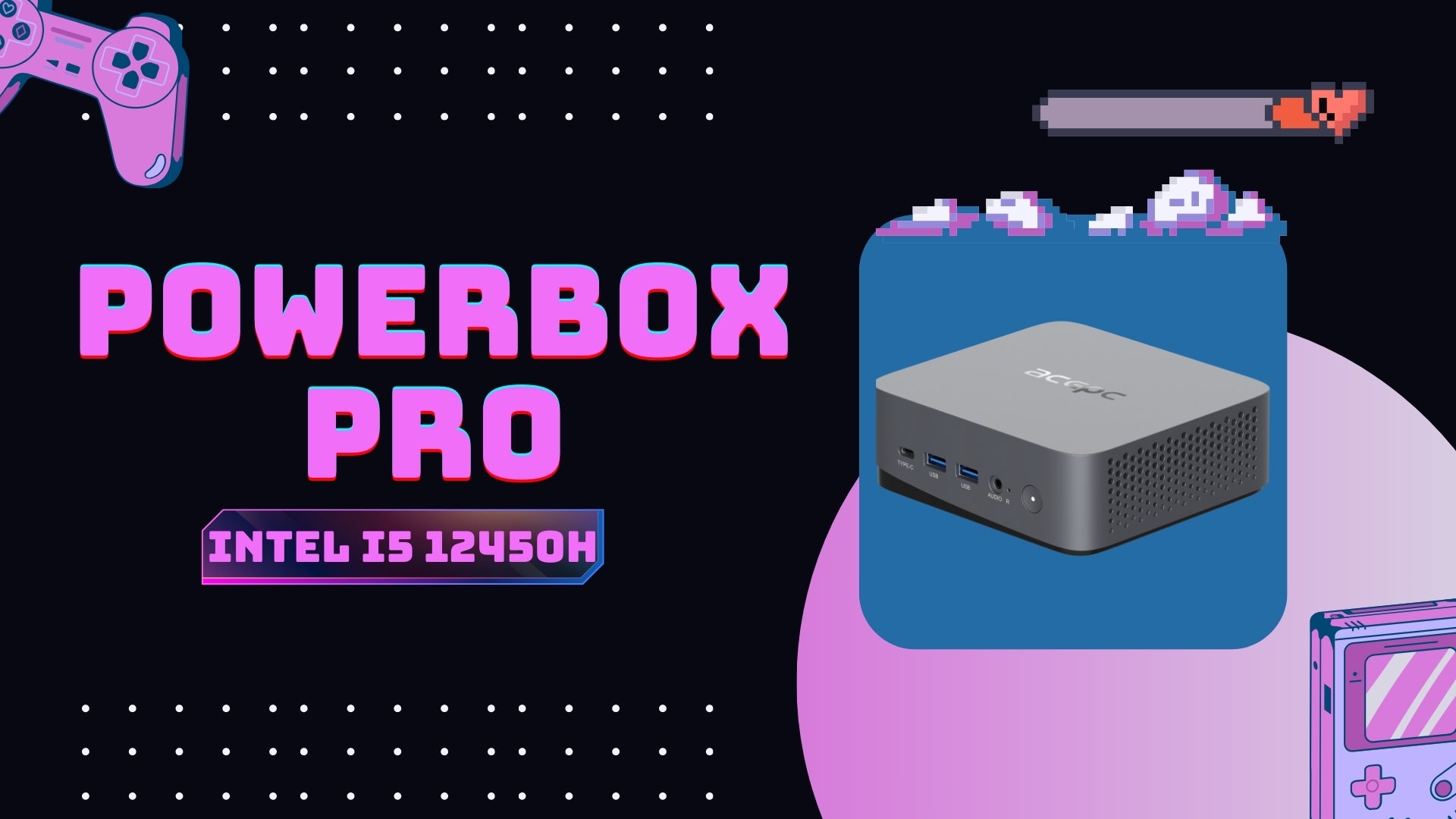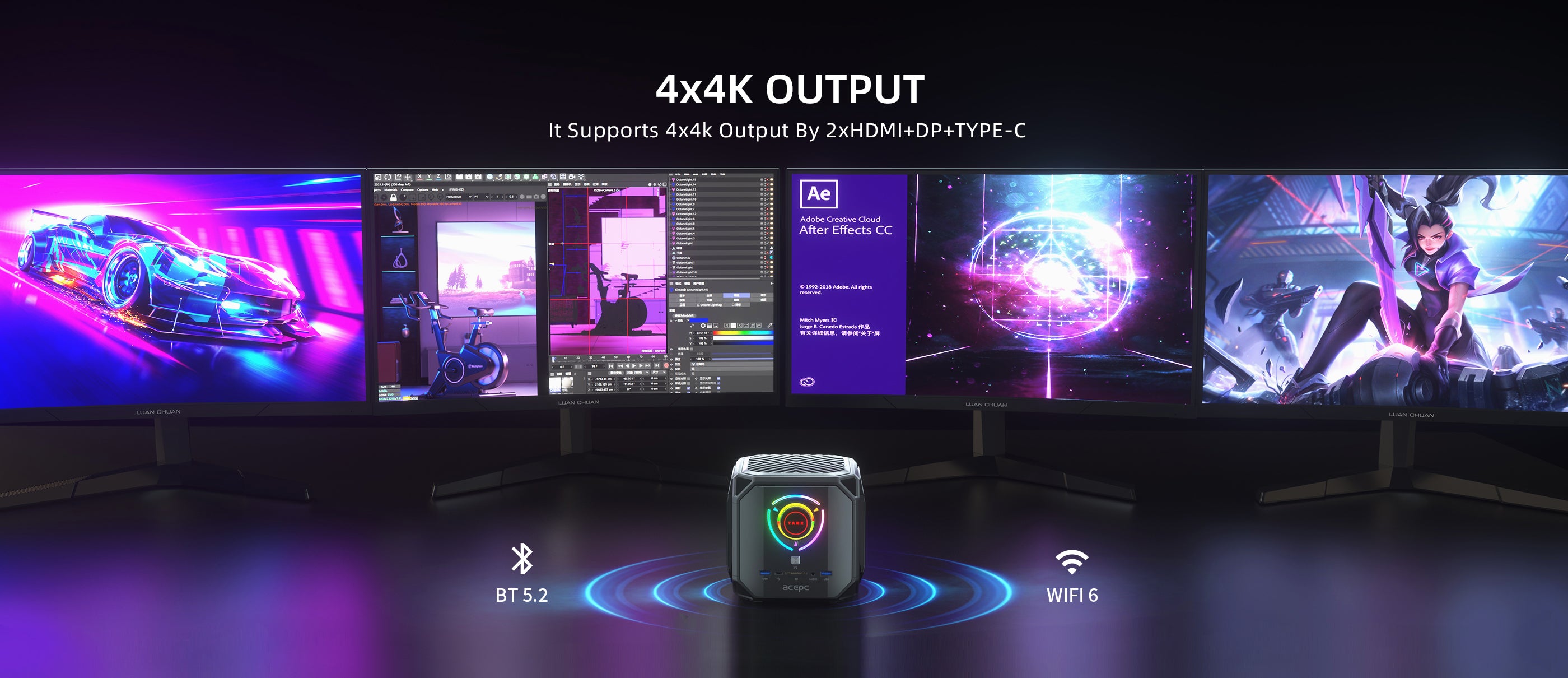|
What is the cost of a mini PC? Mini PC come in various price ranges: Entry-level (under $200): budget-friendly options for basic tasks. Mid-Range ($300-$500): Balancing performance and cost, suitable for light gaming and multitasking. Premium ($800+): ideal for resource-intensive tasks like video editing and gaming. |
In the rapidly evolving computing landscape, the allure of mini PC is becoming increasingly evident. These compact marvels pack a punch, challenging the conventional belief that being oversized is always better. In this blog, we'll delve into the advantages of mini PC. We'll explore their cost implications and ponder whether they can truly replace traditional desktops and laptops.

Advantages of Mini PC: Compact, Yet Mighty
- Space Efficiency: The most apparent advantage of mini PC lies in their compact size. They occupy minimal desk real estate, making them an ideal choice for limited spaces. In cramped offices or minimalist setups, mini PC are a game-changer.
- Portability: Mini PC are easily transportable, offering flexibility in placement. Their lightweight design makes them suitable for users who are constantly on the move or for scenarios where a portable computing solution is essential.
- Energy Efficiency: These smaller devices typically consume less power than their larger counterparts, contributing to energy savings over time. In an era where sustainability is a key consideration, mini PC have emerged as environmentally conscious alternatives.
- Silent Operation: Many mini PC operate silently or quietly. This is a significant advantage for those who value a quiet working environment. This includes content creators, professionals, or home users who prefer a serene workspace.
- Versatility in Mounting Options: Mini PC often come with versatile mounting options, allowing users to hide them behind monitors or attach them to the back of a display. This saves space and contributes to a clean and organized setup.
What is the cost of a Mini PC?
- Entry-level Performance: at a price under $200. Mini PC are available at various price points, with entry-level models catering to budget-conscious consumers. These devices offer basic functionality and are suitable for everyday tasks such as web browsing, document editing, and multimedia consumption.
- Mid-Range Performance: at a price $300-$500. For users requiring more horsepower, mid-range mini PC provide a balance between performance and cost. These models handle more demanding applications, making them suitable for light gaming, photo editing, and multitasking.
- Premium Performance: at a price around $800 .High-performance mini PC rival traditional desktops. Equipped with powerful processors and dedicated graphics cards, these devices can tackle resource-intensive tasks, including video editing, 3D rendering, and gaming at higher settings.
Consideration of Additional Costs: It's essential to factor in additional costs, such as peripherals and accessories, when assessing the overall investment in a mini PC. While some models come bundled with a keyboard and mouse, others may require separate purchases.
Can a Mini PC replace a desktop?
Unveiling the Potential of Everyday Computing Tasks: For users primarily engaged in routine tasks like email, web browsing, and document creation, a mini PC can serve as a worthy desktop replacement. Its compact size is advantageous in scenarios where space is limited.
- Office Productivity: Mini PC equipped with sufficient processing power and RAM can handle office productivity applications easily. Word processing, spreadsheet management, and video conferencing are achievable with many mini PC.
- Media Consumption: If your computing needs revolve around media consumption, a mini PC can be an excellent desktop substitute. These small devices are well-suited to streaming, casual gaming, and multimedia playback.
- Specialized Use Cases: In certain professional environments, such as digital signage, kiosks, or server rooms, mini PC are preferred due to their compact design and energy efficiency. They can be strategically deployed for specific functions without a traditional desktop setup.
Can a mini PC replace a laptop?
- Portability vs. Performance: While mini PC offer portability, they may not match laptop convenience. The choice between the two hinges on whether portability or raw performance is a higher priority for the user.
- Battery Life Considerations: Laptops, with their built-in batteries, provide uninterrupted operation even during power outages or when on the move. Mini PC, being tethered to a power source, lack this inherent advantage and are better suited for stationary applications.
- Display and Input Devices: Mini PC often require separate displays, keyboards, and mice. Laptops, on the other hand, come with these integrated components, streamlining the user experience. The decision to opt for a mini PC over a laptop depends on personal preferences and specific usage scenarios.
What Use Cases Are Suitable for Mini PC?
- Home Entertainment Centers: Mini PC seamlessly integrate with home entertainment setups. Acting as media centers, they support high-definition video playback, streaming services, and even casual gaming, enhancing the overall entertainment experience.
- Digital Signage and Kiosks: Mini PC are ideal for digital signage applications and interactive kiosks. Their reliability, energy efficiency, and ability to fit into tight spaces contribute to their popularity in these scenarios.
- Small Office or Home Office (SOHO) Environments: In SOHO environments, where space is often at a premium, mini PC shine. They offer ample computing power for routine office tasks while minimizing clutter in confined workspaces.
- Educational Settings: Mini PC find utility in educational settings, providing a cost-effective solution for classrooms or computer labs. Their small form factor and energy efficiency make them suitable for educational institutions.
In Conclusion:
The Mini PC Renaissance Are mini PC worth it?
The answer largely depends on individual needs and preferences. For those valuing space efficiency, portability, and versatility, mini PC can be game changers. However, it's essential to carefully consider use cases, performance requirements, and budget constraints before switching. As the technology behind mini PC continues to evolve, these compact devices are carving out a niche for themselves in the dynamic world of computing. They offer a compelling alternative to traditional desktops and laptops.







Leave a comment
This site is protected by hCaptcha and the hCaptcha Privacy Policy and Terms of Service apply.